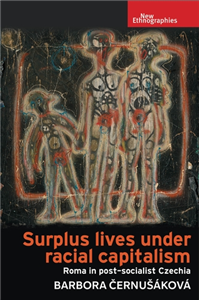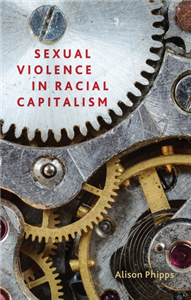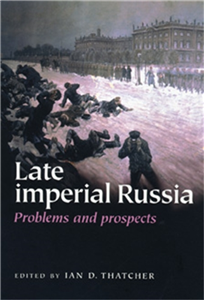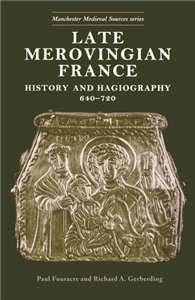Your Search Results
-
GCE - Gabriele Capelli Editore
The Gabriele Capelli Editore (GCE) is a small Swiss publishing house, primarily focused on fiction but occasionally expanding into essays and poetry.
View Rights Portal
-
Promoted ContentHumanities & Social SciencesApril 2026
Surplus lives under racial capitalism
Roma in post-socialist Czechia
by Barbora Cernušáková
Surplus lives under racial capitalism is a critical contribution to the study of racial capitalism. It theorises the link between political economy, anti-Roma racism and modern forms of white supremacy in East Central Europe. The book shows how the introduction of capitalism in the 1990s overlapped with the rise of racialised disposability of Roma workers. Since then, their surplusing recurrently comes into sharp relief during the time of crisis. Surplus lives under racial capitalism is built on an investigation of how race and class structure the Czech labour regime and how they form a single site of struggle. One which binds workers across racialised divisions as surplusing continuously expands.
-
Promoted ContentBusiness, Economics & LawMarch 2025
Tadeusz Kowalik and Poland’s return from socialism to capitalism
Full circle
by Gavin Rae
Tadeusz Kowalik lived through ten decades and three economic and political systems in Poland. He combined his academic study of economic ideas with his socialist ideals of building a fairer and more just society. This book covers the intellectual and political work of Kowalik, within the context of modern Polish history. Kowalik was part of a Polish School of critical left-wing political economists, that included Michal Kalecki and Oskar Lange. Kowalik contributed to the body of work produced by this group, which included his interpretation of their work. Kowalik participated in some of the most momentous events in post-war Polish history, helping to organise a group of intellectuals to advise the shipyard workers at the Gdansk shipyards in 1980. He became a vehement opponent of Poland's neoliberal form of capitalism and left a body of work that illuminates our understanding of capitalism and socialism today.
-
 Trusted Partner
Humanities & Social SciencesMay 2026
Trusted Partner
Humanities & Social SciencesMay 2026Sexual violence in racial capitalism
by Alison Phipps
Most texts on sexual violence treat capitalism as backdrop or afterthought. In contrast, political economy is the core of this book. Phipps explores the centrality of sexual violence to racial capitalist processes: the enclosure of bodies, the extraction of labour, the expropriation of land and resources, and the disposal of unwanted populations. Importantly, she argues that both sexual violence and sexual fear create social control and surplus value. Through a framework called the coloniality of sexual violence, Phipps conjoins acts of sexual violence and ideas of sexual threat in an analysis of gendered and raced property relations and the split colonial/modern psyche. She argues that fantasies of sexual danger represent the infolded violence of racial capitalism, which is why fear of revolution is often fear of rape. Revolution, however, is always imminent: violence is necessary because power is incomplete.
-
 Trusted Partner
Business, Economics & LawMay 2024
Trusted Partner
Business, Economics & LawMay 2024Deep transformations
by Hubert Buch-Hansen, Max Koch, Iana Nesterova
-
 Trusted Partner
Literature & Literary StudiesJanuary 2013
Trusted Partner
Literature & Literary StudiesJanuary 2013The towns of Italy in the later Middle Ages
by Trevor Dean
The towns of Italy in the later middle ages presents over one hundred fascinating documents, carefully selected and coordinated from the richest, most innovative and most documented society of the European Middle Ages. No other English language sourcebook has the same geographical or chronological range. This collection is carefully structured around the crisis of the fourteenth century and arranged in contrasting groups of texts. By connecting documents in translation to recent scholarship and debates, it addresses five key areas of medieval urban history: the physical environment, civic religion, economy, society and politics. Offers students well-translated and effectively contextualised documents along with some guidance to the secondary work of Italian scholars which is largely inaccessible to undergraduate students.
-
 Trusted Partner
Trusted Partner
-
 Trusted Partner
Literature & Literary StudiesJune 2023
Trusted Partner
Literature & Literary StudiesJune 2023Cormac McCarthy
A complexity theory of literature
by Lydia R. Cooper
Combining the fields of evolutionary economics and the humanities, this book examines McCarthy's literary works as a significant case study demonstrating our need to recognise the interrelated complexities of economic policies, environmental crises, and how public policy and rhetoric shapes our value systems. In a world recovering from global economic crisis and poised on the brink of another, studying the methods by which literature interrogates narratives of inevitability around global economic inequality and eco-disaster is ever more relevant.
-
 Trusted Partner
Humanities & Social SciencesNovember 2021
Trusted Partner
Humanities & Social SciencesNovember 2021Twenty-first-century capital
by Aleksander Buzgalin, Andrey Kolganov, Renfrey Clarke
-
 Trusted Partner
Business, Economics & LawNovember 2020
Trusted Partner
Business, Economics & LawNovember 2020Communists constructing capitalism
State, market, and the Party in China’s financial reform
by Julian Gruin
Why has China's 'transition' to a market economy not catalysed corresponding political transformation? In an era of deepening synergy between authoritarian politics and capitalist economics, this book offers a novel perspective on this central dilemma of contemporary Chinese development, shedding light on how the Chinese Communist Party achieved rapid economic growth while preserving political stability. Drawing on extensive fieldwork and over sixty interviews with policymakers, bankers and former party and state officials, the book delves into the role of China's state-owned banking system since 1989, showing how political control over capital has been central to the country's experience of capitalist development. It challenges existing state-market paradigms of political economy and reveals the Eurocentric assumptions underpinning liberal perspectives towards Chinese authoritarian resilience.
-
 Trusted Partner
Trusted Partner
-
 Trusted Partner
Trusted Partner
-
 Trusted Partner
Humanities & Social SciencesJuly 2005
Trusted Partner
Humanities & Social SciencesJuly 2005Late Imperial Russia
Problems and prospects
by Ian Thatcher
This volume offers a detailed examination of the stability of the late imperial regime in Russia. Students and scholars will appreciate the lively summaries of the latest scholarship in political, economic, social, cultural, and international history. Accessible yet insightful, contributions cover the historiography of complex topics such as peasants, workers, revolutionaries, foreign relations, and Nicholas II. In addition, there are original studies of some of the leading intellectuals of the time. The late imperial economy is examined through the writings of Tugan-Baranovsky. There is an account of M. N. Pokrovskii's radical interpretation of late imperial Russia's historical path of development. The state of the Russian theatre is studied through the lives of theatrical impresarios. Each chapter also highlights a unique interpretation, suggesting new lines of inquiry and research. This book will be compulsory reading for students of Russian and European history of the late nineteenth and early twentieth centuries seeking to better understand why Tsarism collapsed in 1917. ;
-
 Trusted Partner
Literature & Literary StudiesJune 2021
Trusted Partner
Literature & Literary StudiesJune 2021Cormac McCarthy
by Lydia R. Cooper, Sharon Monteith, Nahem Yousaf
-
 Trusted Partner
Humanities & Social SciencesNovember 2025
Trusted Partner
Humanities & Social SciencesNovember 2025Law, society and political culture in late medieval and Reformation Germany
by Duncan Hardy
-
 Trusted Partner
Humanities & Social SciencesJanuary 2013
Trusted Partner
Humanities & Social SciencesJanuary 2013Crime, Law and Society in the Later Middle Ages
by Anthony Musson, Edward Powell
This book provides an accessible collection of translated legal sources through which the exploits of criminals and developments in the English criminal justice system (c.1215-1485) can be studied. Drawing on the wealth of archival material and an array of contemporary literary texts, it guides readers towards an understanding of prevailing notions of law and justice and expectations of the law and legal institutions. Tensions are shown emerging between theoretical ideals of justice and the practical realities of administering the law during an era profoundly affected by periodic bouts of war, political in-fighting, social dislocation and economic disaster. Introductions and notes provide both the specific and wider legal, social and political contexts in addition to offering an overview of the existing secondary literature and historiographical trends. This collection affords a valuable insight into the character of medieval governance as well as revealing the complex nexus of interests, attitudes and relationships prevailing in society during the later Middle Ages.
-
 Trusted Partner
Literature & Literary StudiesJanuary 2024
Trusted Partner
Literature & Literary StudiesJanuary 2024White before whiteness in the late Middle Ages
by Wan-Chuan Kao
-
 Trusted Partner
Literature & Literary StudiesJanuary 2013
Trusted Partner
Literature & Literary StudiesJanuary 2013Late Merovingian France
by Paul Fouracre, Richard A. Gerberding
This collection of documents in translation brings together the seminal sources for the late Merovingian Frankish kingdom. It inteprets the chronicles and saint's lives rigorously to reveal new insights into the nature and significance of sanctity, power and power relationships. The book makes available a range of 7th- and early 8th-century texts, five of which have never before been translated into English. It opens with a broad-ranging explanation of the historical background to the translated texts and then each source is accompanied by a full commentary and an introductory essay exploring its authorship, language and subject matter. The sources are rich in the detail of Merovingian political life. Their subjects are the powerful in society and they reveal the successful interplay between power and sanctity, a process which came to underpin much of European culture throughout the early Middle Ages.
-
 Trusted Partner
Literature & Literary StudiesMarch 1996
Trusted Partner
Literature & Literary StudiesMarch 1996Late Merovingian France
by Paul Fouracre
This collection of documents in translation brings together the seminal sources for the late Merovingian Frankish kingdom. It inteprets the chronicles and saint's lives rigorously to reveal new insights into the nature and significance of sanctity, power and power relationships. The book makes available a range of 7th- and early 8th-century texts, five of which have never before been translated into English. It opens with a broad-ranging explanation of the historical background to the translated texts and then each source is accompanied by a full commentary and an introductory essay exploring its authorship, language and subject matter. The sources are rich in the detail of Merovingian political life. Their subjects are the powerful in society and they reveal the successful interplay between power and sanctity, a process which came to underpin much of European culture throughout the early Middle Ages. ;
-
 Trusted Partner
Literature & Literary StudiesJanuary 2013
Trusted Partner
Literature & Literary StudiesJanuary 2013Popular protest in late-medieval Europe
Italy, France and Flanders
by Samuel Kline Cohn
The documents in this stimulating volume span from 1245 to 1424 but focus on the 'contagion of rebellion' from 1355 to 1382 that followed in the wake of the plague. They comprise a diversity of sources and cover a variety of forms of popular protest in different social, political and economic settings. Their authors range across a wide political and intellectual horizon and include revolutionaries, the artistocracy, merchants and representatives from the church. They tell gripping and often gruesome stories of personal and collective violence, anguish, anger, terror, bravery, and foolishness. Of over 200 documents presented here, most have been translated into English for the first time, providing students and scholars with a new opportunity to compare social movements across Europe over two centuries, allowing a re-evaluation of pre-industrial revolts, the Black Death and its consequences for political culture and action. This book will be essential reading for those seeking to better understand popular attitudes and protest in medieval Europe.
-
 Trusted Partner
Humanities & Social SciencesApril 2025
Trusted Partner
Humanities & Social SciencesApril 2025Islamophobia, anti-racism and the British left
by Scarlet Harris
Islamophobia is one of the most misunderstood and pernicious forms of racism in Britain. But how do those committed to challenging Islamophobia understand it? And what does this mean for their practices 'on the ground'? Islamophobia, anti-racism and the British left combines first-hand accounts from activists and community workers across two British cities with sociological theory, critically interrogating Islamophobia's relationship to 'race', racial capitalism and other modalities of racism. Setting this discussion against some of the most pertinent political shifts in Britain in recent years - from the resurgence of left nationalism to Black Lives Matter - the book assesses the limits of recent attempts to think about and tackle Islamophobia, and considers the possibilities of an alternative approach from and for the anti-racist left.





















